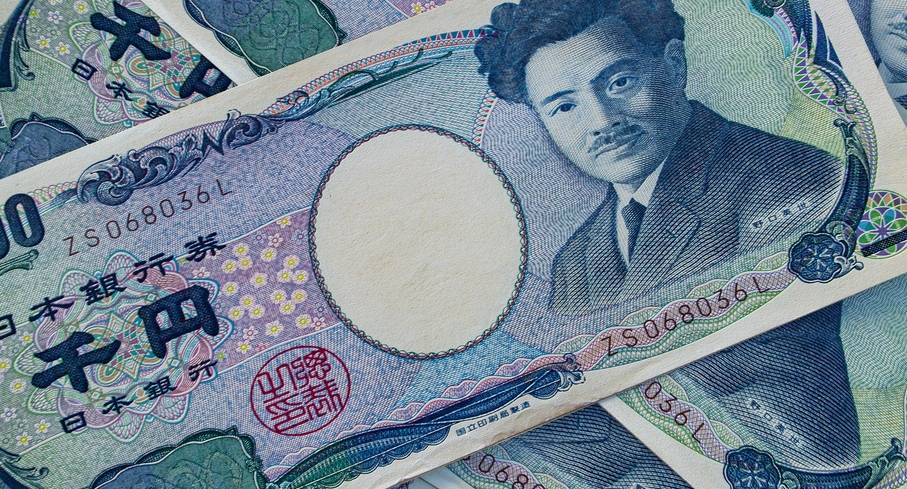Yen Plunge Shakes Japan's Economy and Markets
Advertisements
The Japanese yen has been facing a severe depreciation, plunging to a staggering low against the US dollar. This situation has sparked significant concern among market analysts and economists, who are now warning that the weakening yen might turn into a detrimental factor for both the Japanese stock market and the domestic economy. Up until now, the yen's decline was seen as a boost for the Nikkei stock index, with many prominent export-oriented companies benefiting from higher revenues when converted to yen. However, this trend seems to be shifting.
As major Japanese industries predominantly consist of exporters—including the automobile and electrical manufacturing sectors, which comprise over 25% of the Tokyo Stock Exchange—the previous depreciation of the yen certainly played a pivotal role in driving stock prices higher. With the yen's value dropping, companies with substantial overseas operations witnessed improved revenues in yen terms. For instance, automotive giants like Toyota and Honda celebrated record sales internationally, amplified by the yen's weakened state. But the recent rapid decline, which saw the yen plummet to a record 155.44 against the dollar, is resulting in inflated costs for import-dependent businesses and a squeeze on consumer spending.

Since the last week of March, when the yen's downward spiral began, Japan's Nikkei 225 has fallen over 8% from its historical highs. Concurrently, consumer-proxy stocks have struggled, reflecting an ongoing trend of declining consumer activity within Japan. The Tokyo Stock Exchange's Land Transportation Index, which includes a variety of railway operators, has remained stagnant throughout the year, grossly underperforming compared to the overall index rise of 12.5%. Moreover, the consumer activity index—which specifically excludes spending from foreign tourists—has recorded consecutive quarters of decline, dropping to its lowest level in two years.
Japanese retailers have been suffering particularly badly. With stock prices lagging behind benchmark indices, retail stocks have seen a mere 8% increase year-to-date. Alarmingly, around 40% of companies categorized under the Tokyo Stock Exchange’s retail sector have reported losses. This dismal performance has investors worrying about the outlook for earnings reports expected in the coming weeks, especially for domestic-centric businesses like retail and transportation.
Commenting on this situation, Nobuhiko Kuramochi, a market strategist at Mizuho Securities, articulated the financial predicament facing retailers. He noted the rapid depreciation of the yen is exacerbating cost pressures, leading to a likely increase in prices which could push consumers towards more frugal spending habits. Observing these market trends has become paramount, as shifts in consumer behavior could have lasting effects on the economy.
On the other side of the coin, Kensuke Niihara, Chief Investment Officer at State Street Global Advisors in Japan, echoed concerns about the implications of the yen's further weakening for consumers. Some optimistic investors had viewed the significant wage increases anticipated this year as a catalyst for renewed consumer spending in Japan. However, Niihara cautioned that such assumptions hinge on conditions like potential interest rate cuts from the Federal Reserve, which would aim to reduce the US-Japan interest rate differential and cushion the yen's fall. Yet, recent robust economic indicators from the United States have diminished those rate cut expectations.
Industry leaders have not remained silent on the depreciation of the yen. The head of Keidanren, Japan’s largest business association, remarked on April 23 that the current rate of yen depreciation is excessive. Although government officials claim readiness to intervene in currency markets, the persistent gap in US-Japan interest rates could result in a transient impact from any such measures.
Last week, the president of the Tokyo Chamber of Commerce pointed out that small and medium-sized enterprises across Japan are feeling the brunt of rising import material costs—a sentiment echoed by the head of Suntory Holdings, who urged the government to address the issues stemming from a depreciating yen.
Amidst mounting pressure, the spotlight is now on when the Japanese government might intervene in currency markets to steady the yen. Mitsuhiro Furusawa, a former senior currency official, indicated that the government is precariously close to needing to take action, particularly if the yen's decline continues for an extended period. He stated that the pace of yen depreciation is alarming, especially given the current stable US and Japanese interest rates. The recent joint statement from the US, Japan, and South Korea also suggests that Japan could intervene without hesitation if necessary. The market is particularly attuned to the upcoming release of the core PCE price index—an important inflation indicator for the Fed—as an unexpected spike could recalibrate interest rate expectations and exacerbate the yen’s fall against the dollar.
This Friday’s Bank of Japan policy decision is poised to be another focal point for the market. In March, the Bank of Japan made a historic shift by moving away from ultra-loose monetary policy measures, including negative interest rates and yield curve control. However, compared to the 525 basis points accumulated by the Fed, the tightening measures in Japan have been minimal. Furusawa anticipates that the Bank of Japan could move to raise rates as early as July. While many expect the Bank to maintain its current stance during this meeting, there might be a hint of a more hawkish tone regarding potential future rate hikes.
During a recent presentation in Washington, Bank of Japan Governor Kazuo Ueda emphasized that if the yen’s depreciation continues to push inflation upward, a rate rise might be on the table. Ueda reiterated this sentiment earlier this week, stating that if the effects of yen depreciation on prices are deemed "not negligible," the possibility of future monetary policy adjustments cannot be disregarded. The market eagerly awaits these decisions and potential interventions, knowing that they will play critical roles in shaping the future course of the Yen, the stock market, and ultimately, the broader Japanese economy.
Leave a Reply
Your email address will not be published. Required fields are marked *